Olympic Digest - Day 16: 20 unforgettable moments from the Sochi Winter Games
It's become a trope, frequently used by sports writers: present an event from the perspective of an impossible duality to make it sound more meaningful than it truly is.
It was the best of times, it was the worst of times, it was the age of wisdom, it was the age of foolishness, it was the epoch of belief, it was the epoch of incredulity, it was the season of Light, it was the season of Darkness, it was the spring of hope, it was the winter of despair, we had everything before us, we had nothing before us, we were all going direct to Heaven, we were all going direct the other way.
- A Tale of Two Cities
Deep, man. Deep.
It's easy to be cynical about the Winter Olympics. So much willful ignorance is necessary to appreciate the phenomenon. Ignore the human rights abuses by the hosts. Ignore that you only care about these events once every four years. Ignore the enormous budget being spent on spectacle instead of aiding those in need.
But then an 18-year-old woman wins the slalom race. She smiles and pumps here fists emphatically. Your heart melts.
The best hockey player in the world scores an important goal for his team in the gold medal game, and your hands fly in the air involuntarily and a guttural cheer evacuates your body.
A Japanese figure skater, out of contention for a medal, performs the most emotionally moving routine ever. She finishes, and breaks down, sobbing in the middle of the rink. Your goosebumps and slightly watery eyes betray any attempt at cynicism.
Two years ago, a freestyle skier died. Her team - hindered by misguided bureaucracy in attempting to honor her memory - resort to the most cathartic and covert of tributes. You feel pride over the fact that humans can overcome even their worst impulses.
The Olympics reduce you to A Tale Of Two Cities cliché. Horrendous and gorgeous. Beautiful and grotesque. Perfect and flawed.
For the last 16 days, we strived to bring you all of the news, events, happenings, commentary and analysis possible. Here are our favorite moments form the 2014 Winter Olympics in Sochi:
The Post
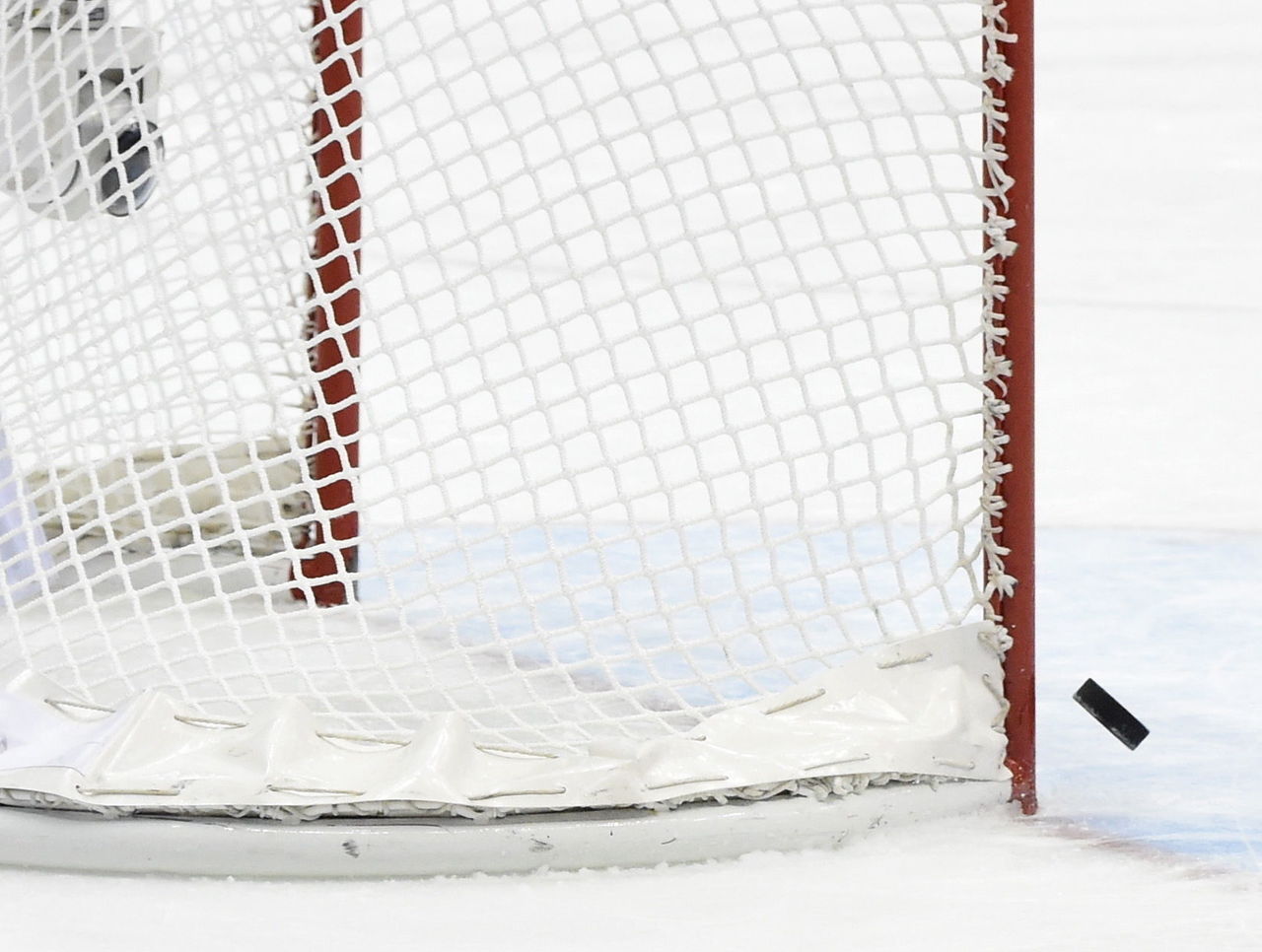
By: Katie Flynn
Just a minute remained, the Americans led 2-1. Canada's Catherine Ward had one job; don't let that puck get behind you -- the gold is as good as gone if it does. With the body check of a linesman, the puck went past Ward. It was over for a split second -- until that puck dinged off the post. Canada had life. The iron saved a goal without trying. That in and of itself was enough motivation to bring the game to overtime. Canada's hope of defending their gold in Sochi ended up laying opon the shoulders of Marie-Philip Poulin who tied the game and scored in overtime. She's literally a golden girl; she scored both goals in the final in Vancouver, and two of the most important in the Sochi final. They started down 2-0, and finished 3-2 (OT). Lest we forget the efforts made by the iron post.
Team Canada
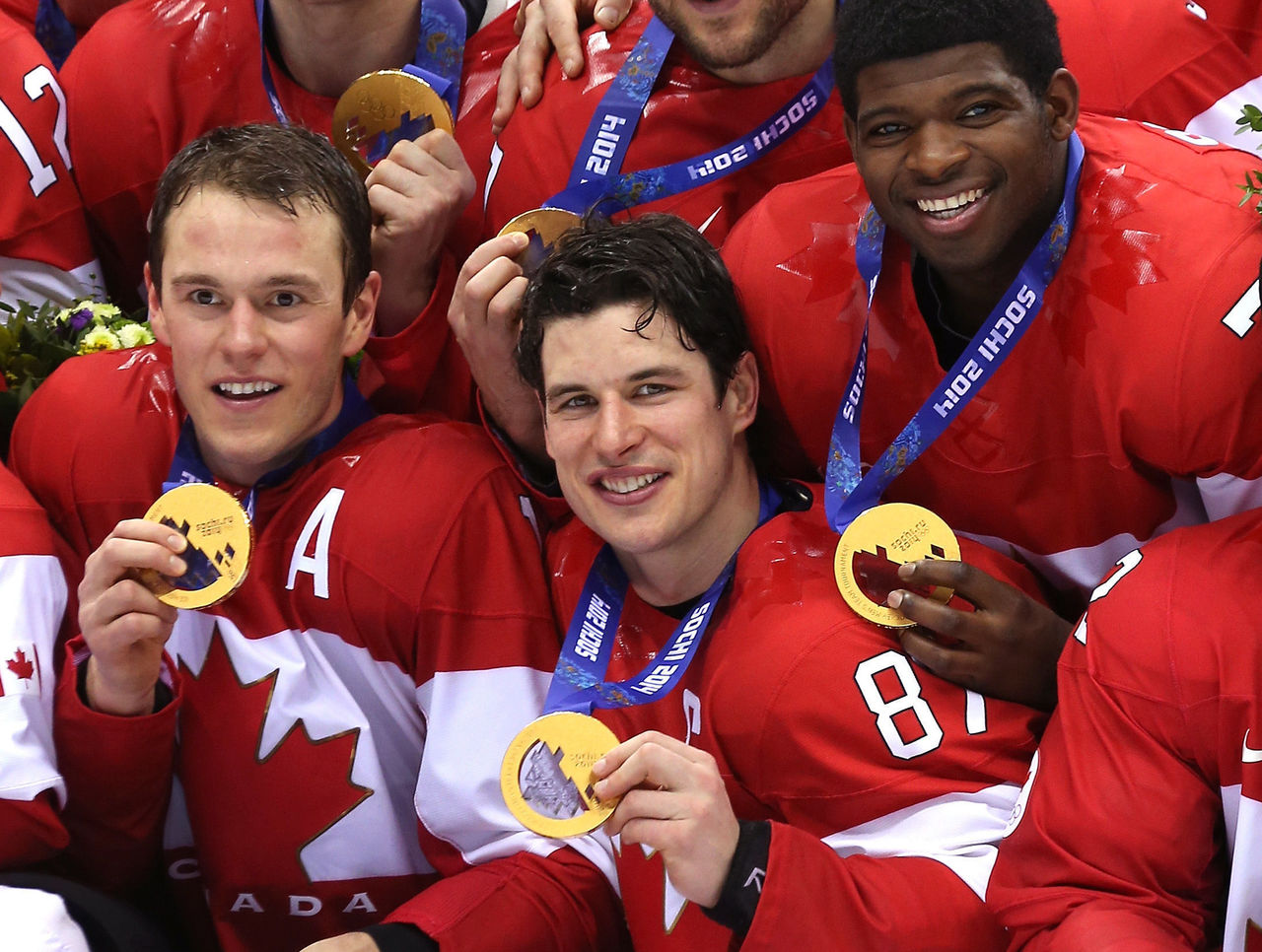
By: Thomas Drance
Like a late third period goal against Latvia, Team Canada's second gold medal victory in as many games felt inevitable by the time the puck had dropped in Sunday's gold medal game. Sweden was playing with only 11 forwards, after all, following a positive drug test to Nicklas Backstrom. Without Backstrom, Henrik Sedin and Henrik Zetterberg - easily the countries three best centermen - the Tre Kronor were minced meat in the face of an impenetrable Canadian machine.
The hand-wringing about Canada's inability to finish seems precious in retrospect, as Canada dominated the puck and every team they played on the way to Olympic gold. "Does anybody know who won the scoring race? Does anybody care?" Coach Mike Babcock asked rhetorically after the win, gently mocking the press. Then just before he exited stage left Babcock added, "Does anyone know who won the gold medal? See you, guys," and literally dropped the mic. A perfect response from the most second guessed man in the country, upon the precise moment of his complete vindication.
Shaun White
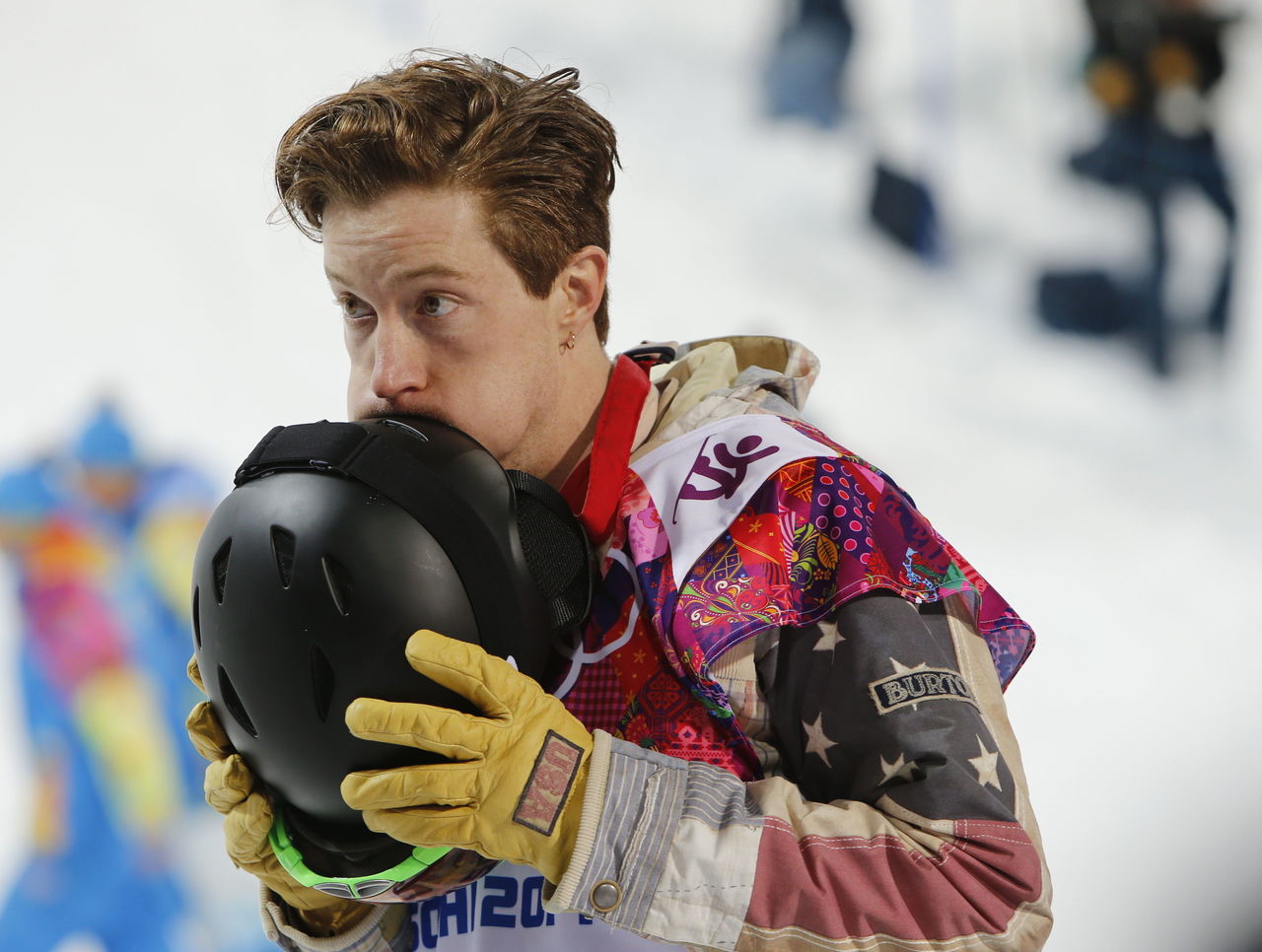
By: Erin Valois
These Olympics were not kind to snowboarder Shaun White. He spent more time complaining about the venue than actually competing. When the two-time gold medalist dropped out of the slopestyle to focus on halfpipe after hurting his wrist in a training run, he earned the mockery of the Canadians. It did not help that he talked about the course flaws all the time, as though he was getting an excuse in place for his future failings. And that's exactly what happened: White didn't even make the podium in the halfpipe, even though he was the gold-medal favorite, and finished a dismal fourth. Maybe he shouldn't have cut his hair.
Figure Skating Controversy
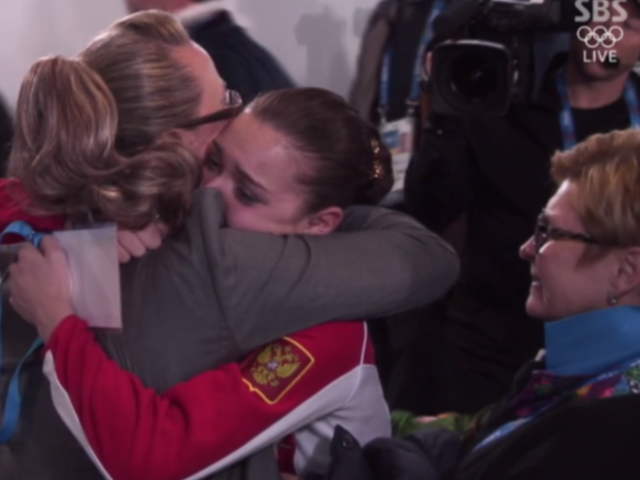
By: Dustin Parkes
In addition to using a judge who was previously suspended for a year after fixing the outcomes of the pairs ice dance in Nagano in 1998, the panel of officials scoring the women's free skate included Alla Shekhovtseva - the wife of Valentin Piseev, the longtime president and general director of the Russian Skating Federation.
When Adelina Sotnikova's program was judged to better than the heavily favored Yuna Kim's, giving the Russian skater the gold medal, the suspicions of everyone were raised. Not helping matters at all was the picture caught on Korean television of the Russian judge warmly embracing the Russian figure skater.
Mikaela Shiffrin
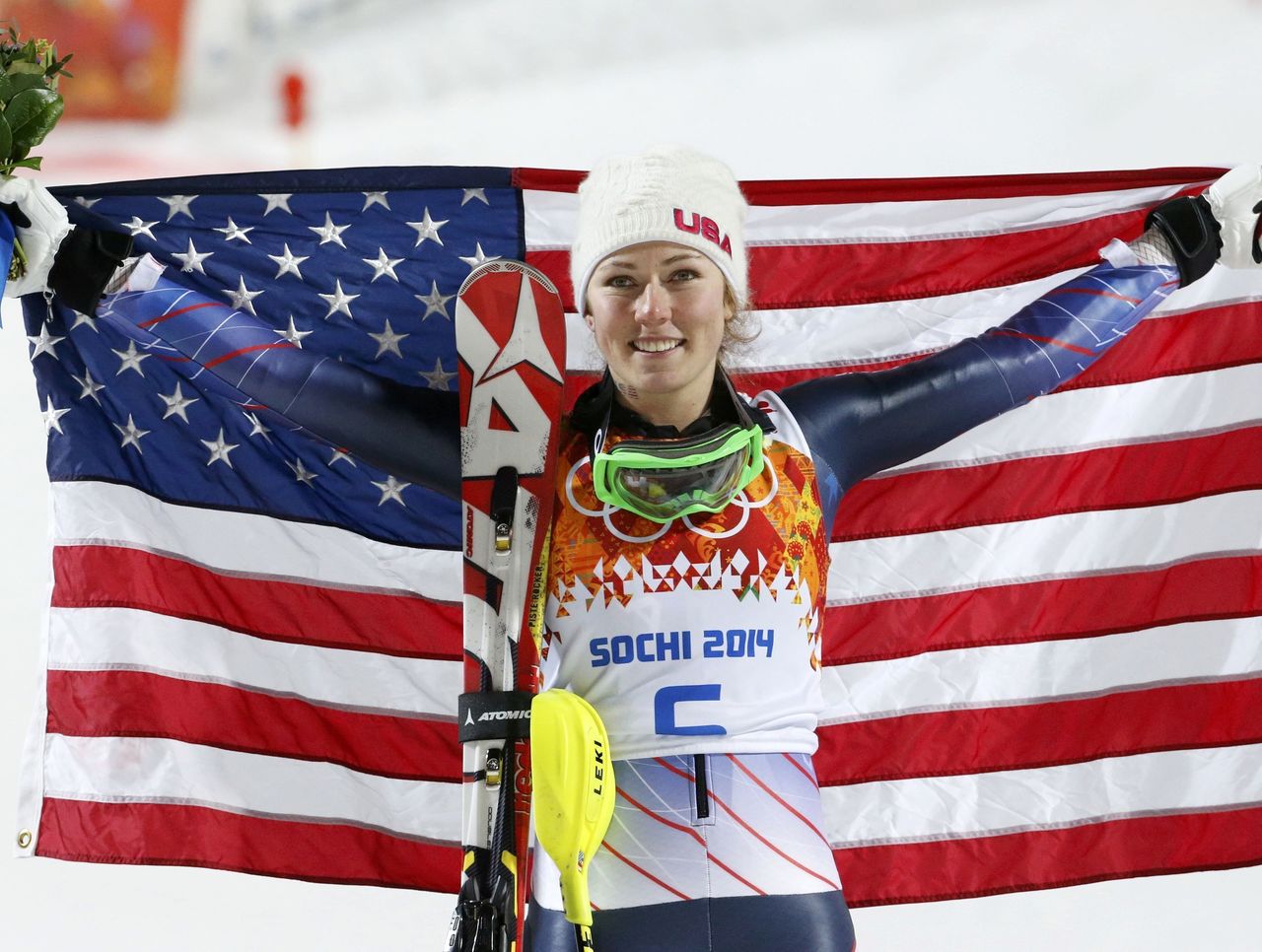
By: Michael Tomasone
Winning a gold medal is an extremely difficult and impressive feat, especially for a teenager (many adolescents are struggling to stay awake during lectures, and not even thinking about winning any type of medal). Mikaela Shiffrin appeared in two events, and that's all she needed to make history. The 18-year-old competed in women's Alpine Skiing, winning gold in the slalom component. With the win, Shiffrin became the first American woman to win an Olympic slalom event in 42 years, as well as the youngest to ever do so.
Despite winning the gold and a being a ski phenomenon, Shiffrin set the bar a little too high for the 2018 Winter Olympics. Shiffrin is looking to add to her medal collection, with an additional five gold medals. The American is hoping for a gold medal sweep in all of the Alpine skiing events.
Star spangled adorable.
Mao Asada
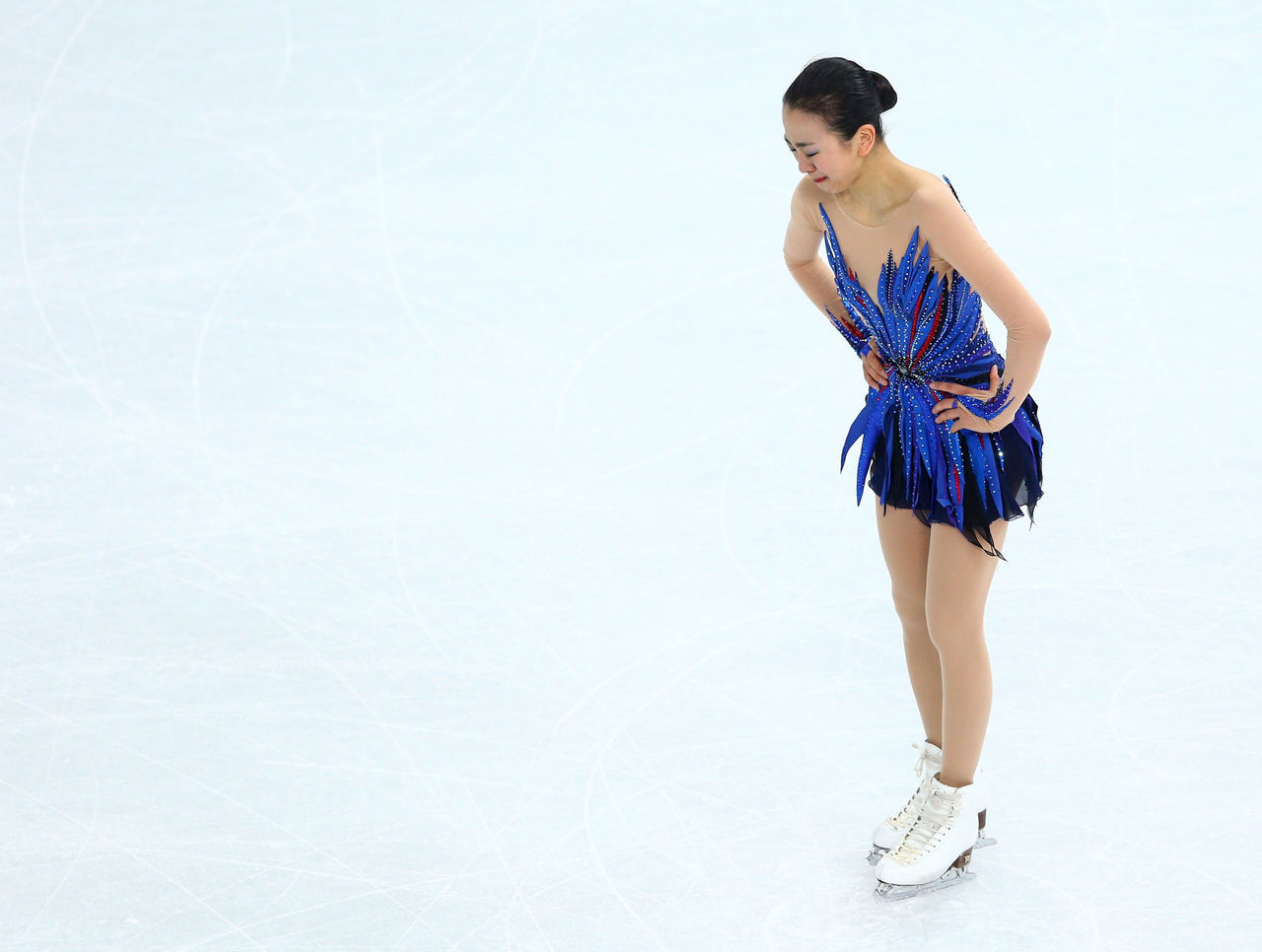
By: Steph Rogers
If Yuna Kim is the textbook for women's figure skating, Mao Asada is the alternate ending. She's the only woman in active competition who can land a triple axel (and just the fifth of all time).
She has an unparalleled grace to match her powerful arsenal -- something Tonya Harding could only dream about -- but a failed triple axel attempt in her Sochi short program landed her in a distant and disappointing 16th heading into the free skate. She told reporters afterward that she felt her mind was disengaged from her body.
The Vancouver 2010 silver medalist and two-time world champion went from heavy favorite for Olympic gold to nearly forgotten behind Kim, Italy's Carolina Kostner, the American team, and the Russians who dominated the short.
But Asada didn't stop. The 23-year-old, who plans to retire at the end of the season, skated to a personal best 142.71 score in the free program. With nothing to lose, she nailed her triple axel (and three more triples) in the first minute of her skate.
When she finished, the contagious smile that rarely leaves her face was replaced by full-on sobbing, presumably fueled by both relief and redemption.
In Memory Of Sarah Burke
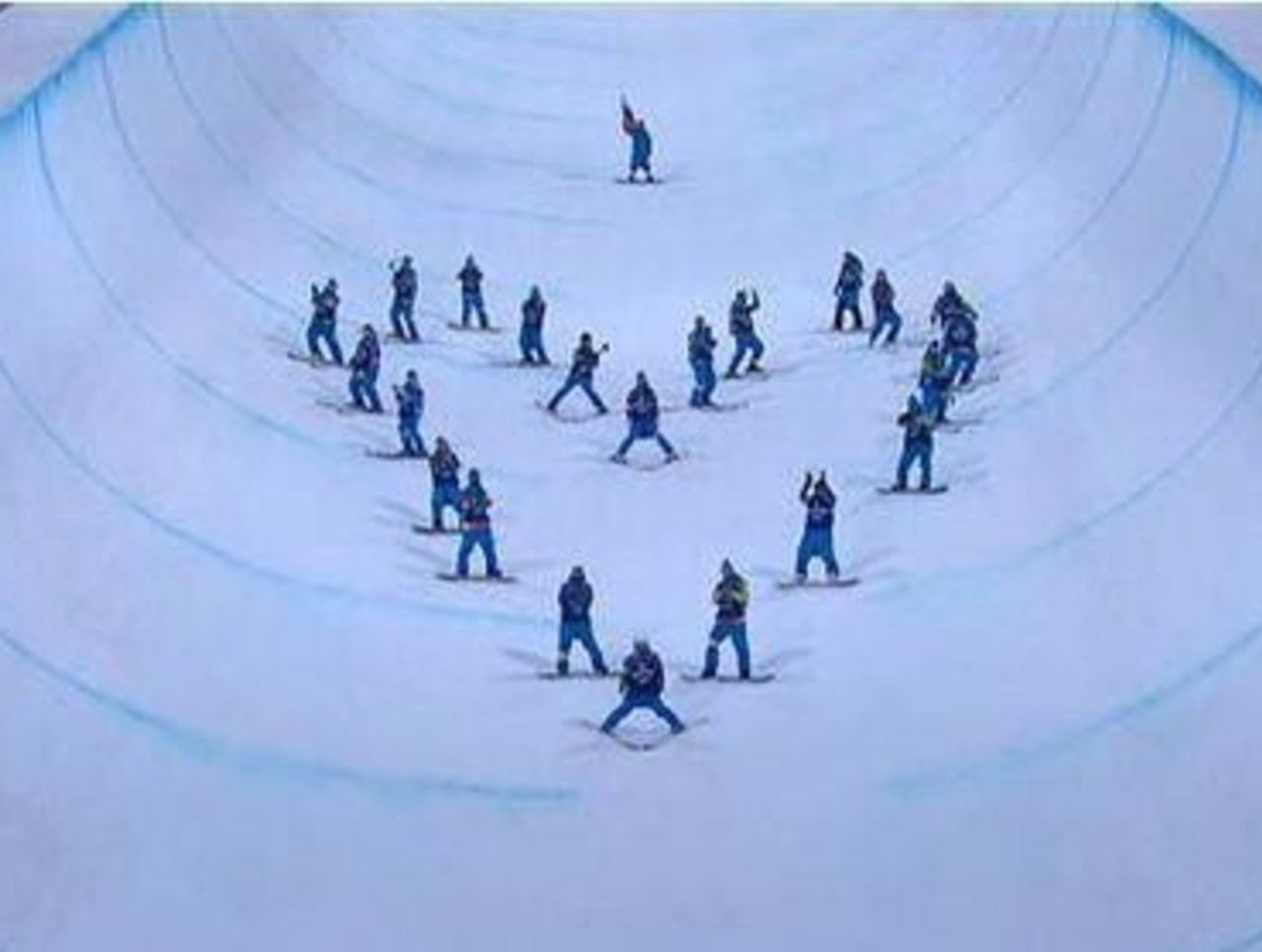
By: Erin Valois
Freestyle skier Sarah Burke, who died in a January 2012 training accident, was instrumental in getting slopestyle recognized as an Olympic event. But the skiers were not allowed to pay tribute to their hero because the IOC would not allow memorial stickers or armbands. So instead, a group of volunteers skied down the course in the shape of a heart. And coach Trennon Paynter told reporters he scattered some of Burke's ashes at the halfpipe before competition started.
American Russian Vic Wild
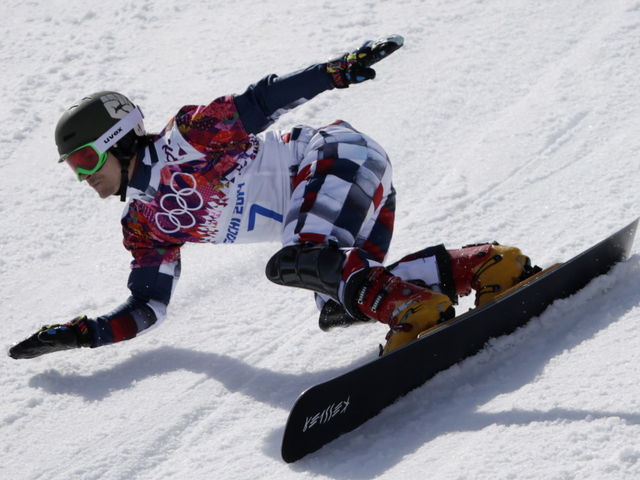
By: Mike Dickson
Vic Wild wasn't supposed to be at these Olympics. It looked like he was done with parallel snowboarding when the U.S. Ski and Snowboarding Association pulled funding from his event to better support the likes of halfpipe and snowboard cross. However, Wild married his Russian girlfriend, Alena Zavarzina, in 2011 and a year later was granted citizenship. Now a member of the better funded Russian program, Wild was able to compete in the Olympics and do so representing the host country.
On Wednesday, February 19th the American-turned-Russian dominated the field in parallel giant slalom and was awaiting his chance to race for gold when something incredible happened; his wife, Zavarzina, won the bronze medal in the same event. Just a few minutes later Wild was first down the hill to capture the gold medal while the Russian fans rocked Rosa Khutor Extreme Park with cheers. It was an amazing moment for husband and wife to win medals within moments of one another, an Olympic medal that would have seemed an impossibility for Wild just a few years earlier. The two embraced each other in the kind of scene only the Olympics can produce, and yet, Wild wasn't done. Three days later he would capture his second gold medal of the Games and despite being born an American, he left Sochi a Russian hero.
Ukraine
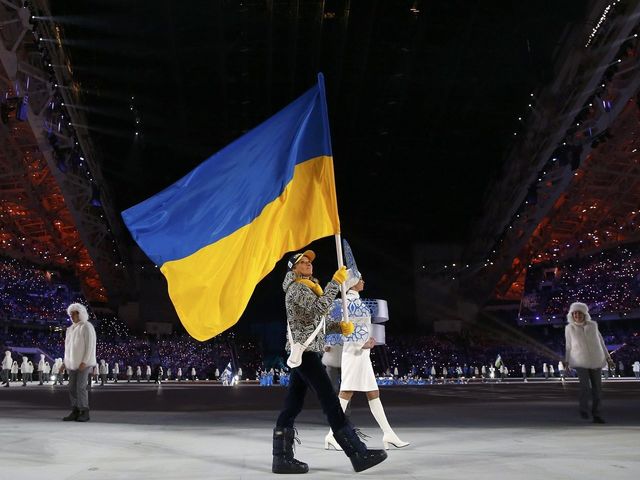
By: Devang Desai
At their best the Olympics provide a distraction from our day-to-day lives. For Ukraine's athletes in Sochi that was amplified, as they watched Kiev descend into chaos. A resolution of sorts has been brokered, but tension remains as a nation attempts to determine its future.
On the final Friday of these Olympic games Ukraine captured gold in the women’s biathlon relay, beating out Russia for the honor. For a country that has struggled to escape Russia's influence since the fall of the Soviet Union, the symbolism was poignant.
Morrison And Junio
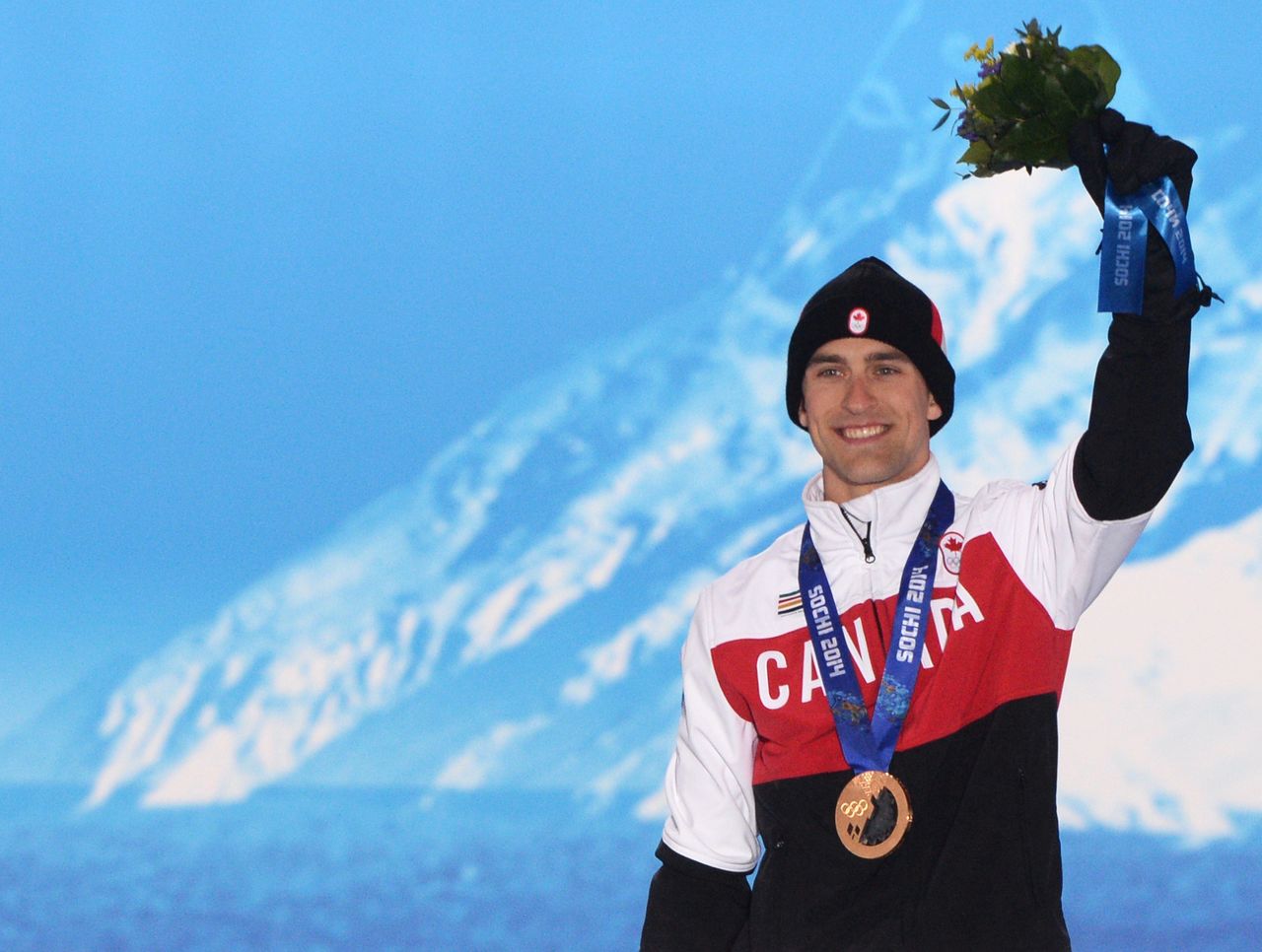
By: Navin Vaswani
The Olympic spirit, to me, is about sacrifice. Olympic athletes - and their families - sacrifice their prime years for sports that, for the most part, people care about for only a few minutes once every four years; for sports that don't guarantee riches and fame (that guarantee the opposite, really).
No one embodied the Olympic spirit, that sense of sacrifice, in Sochi more than Canadian speed skater Gilmore Junio. The 23-year-old from Calgary, who skated in the men's 500m, finishing a respectable 10th in the world, gave up his spot in the men's 1000m event to his teammate Denny Morrison. He did it via text message - "Hey, you ready for the 1,000? You can have my spot if you want."
The rest is Canadian history: Morrison, who failed to qualify for the 1000m before the Olympics, and who wasn't considered a threat in the event, skated the race of his life, winning a silver medal with Junio and Junio's family cheering him on from the stands.
Junio was at the Olympics to skate. He chose not to, so Team Canada would benefit. It doesn't get more selfless, or much better, than that.
Vladimir Putin
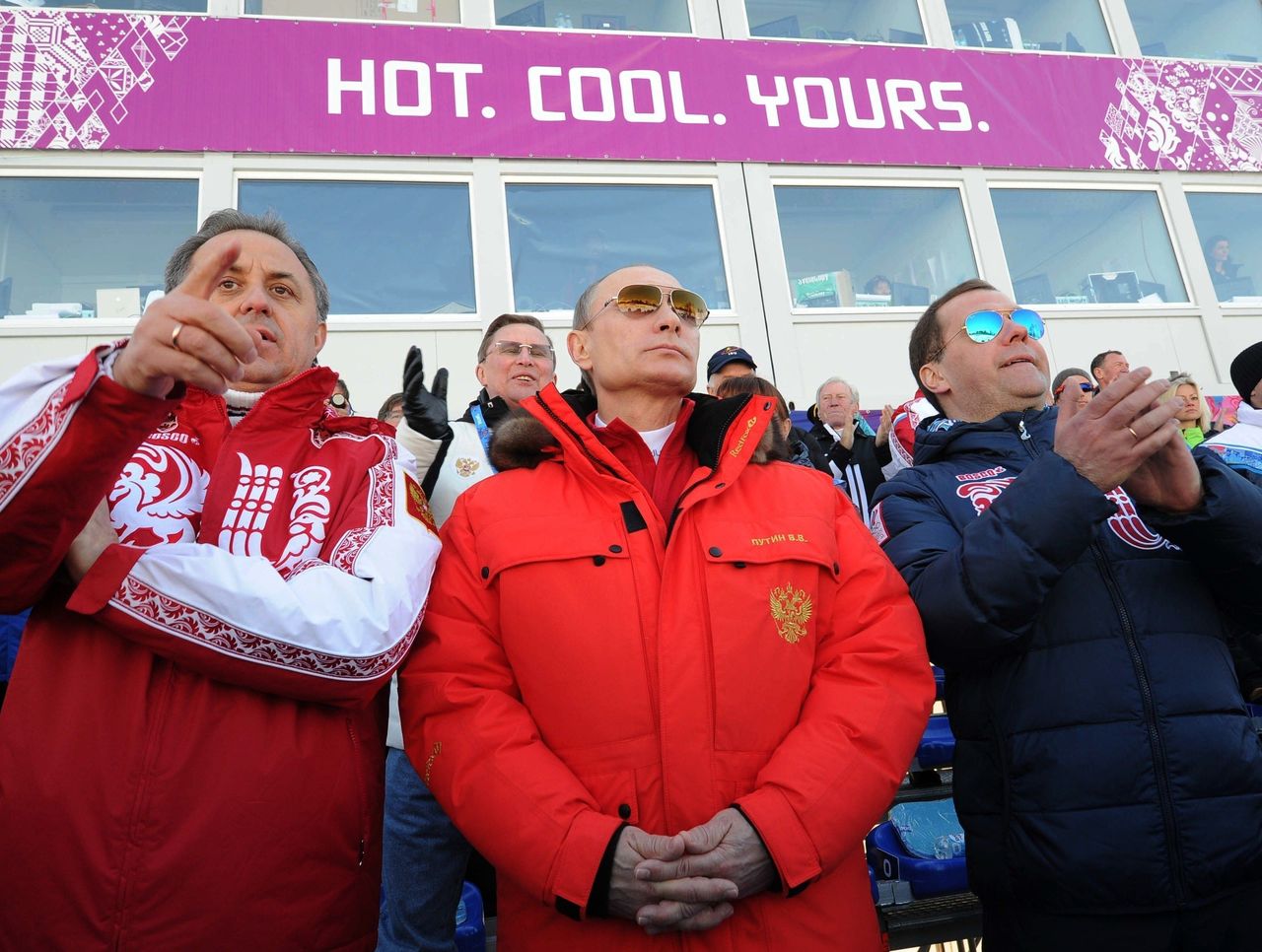
By: Devang Desai
The Sochi games went off without a hitch. Well aside from the Olympic village’s shoddy construction and dangerous course conditions at various venues. There were no terrorist attacks, Russia won the medal count and Putin wasn’t publicly embarrassed once. We’ll discount the performance of their hockey team.
As the world’s focus shifts away from Putin’s grand project, the Russian strongman remains in the spotlight. Russia’s influence on Ukraine hangs in the balance, as Putin’s ally, Viktor Yanukovich, chose bloodshed when faced with unrest. Will Putin consolidate his grip on the region when the world’s journalists head to the airport?
The Puppy Olympics
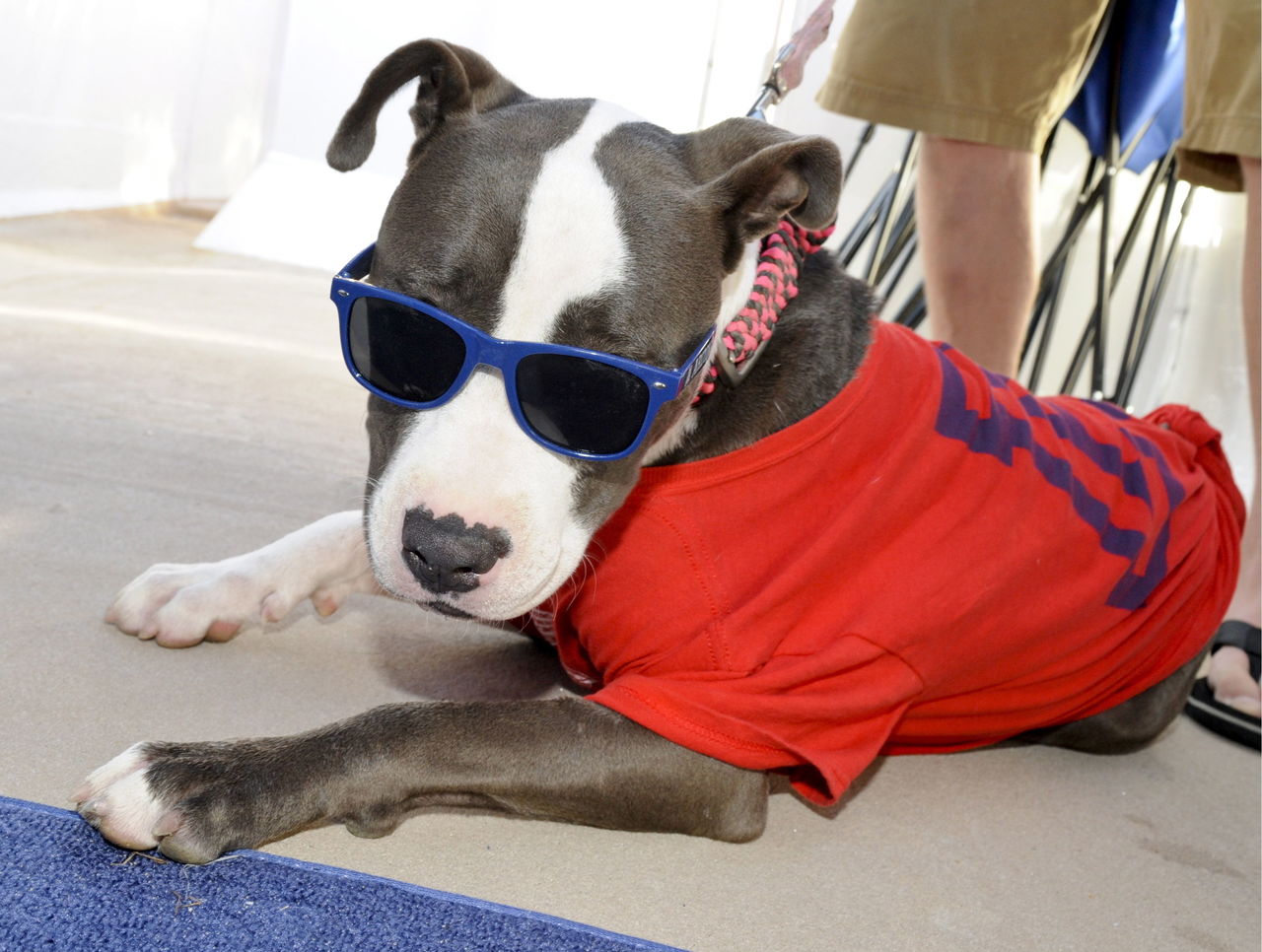
By: Erin Valois
If anything, the 2014 Olympics were the Puppy Olympics. There were dogs in the athletes village, on the cross-country skiing course, and even one made it into the opening ceremonies. It did feature a great ballet scene from Tolstoy’s War and Peace, so he was probably the envy of all the other puppies.
Many athletes, including some from the U.S. hockey team, decided to take them home. One athlete in particular became famous just for his puppy love: U.S. freestyle skier Gus Kenworthy adopted five dogs to bring back to Colorado. This actually dominated the headlines for a while, mostly because puppies are a Thing on the Internet. Did you know he won a silver me--- OH, GOD. PUPPIES.
Oh my glob, look who I just found! :) #sochistrays pic.twitter.com/ne66y7jN6Z
— Gus Kenworthy (@guskenworthy) February 11, 2014
Overlooking Figure Skating Controversies
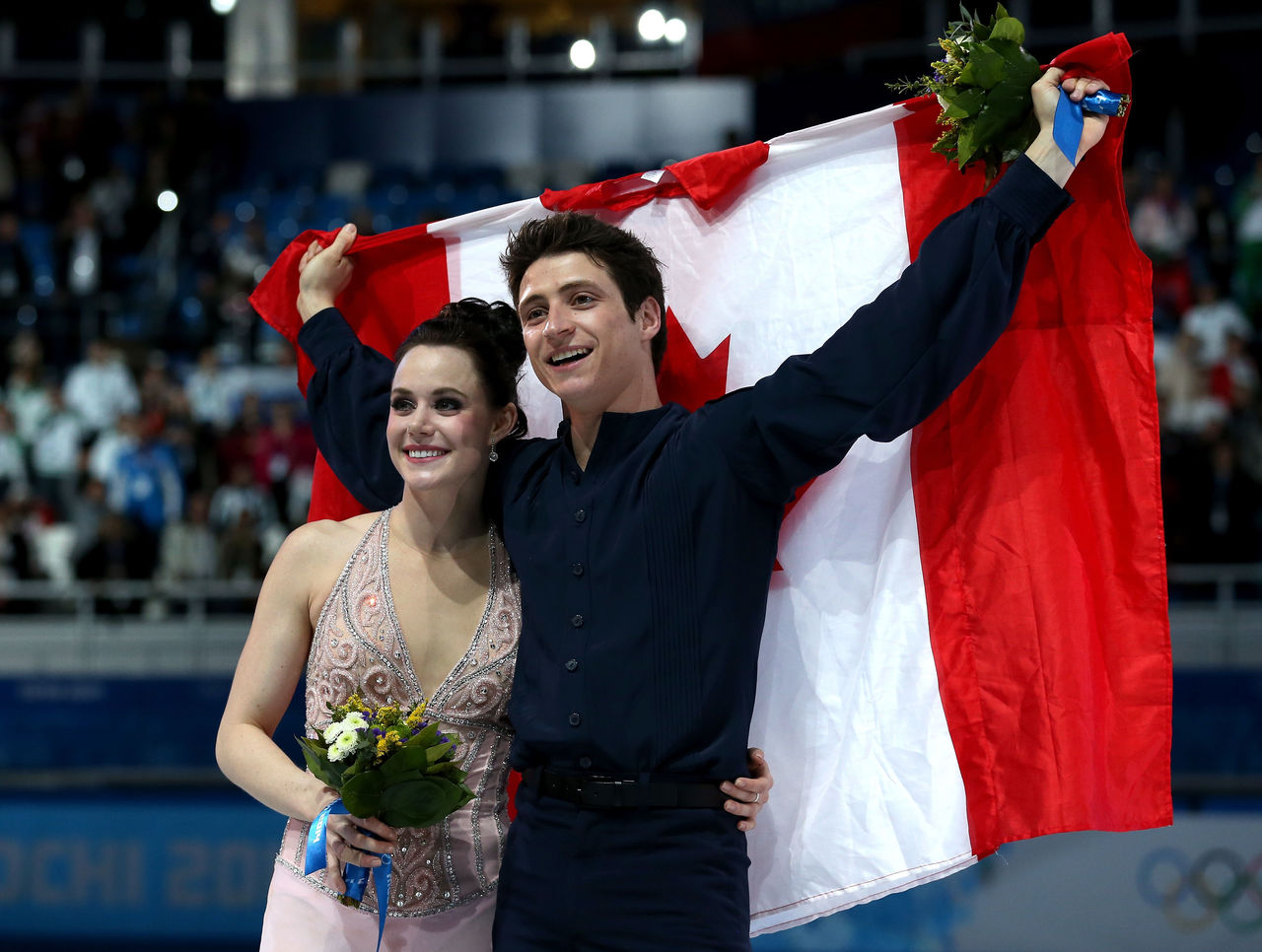
By: Steph Rogers
Figure skating rarely lets you forget how cruel it is. One hard fall on a routine jump can dismantle an athlete's psyche on the ice, while the new judging system brought into the sport to seal its cracks in credibility continues to leak from every seam.
Luckily, figure skating has the strangest aptitude for creating Olympic moments that make you disregard the conspiracies that will all but guarantee someone deserving skates away gold-less.
More than gold medal game-winning goals or crossing the finish line first, figure skating makes surreal moments out of the madness. A free dance is nearly five minutes of breath-holding, stomach-knotting artistry and romanticism that reassures those watching that they are indeed capable of feeling. A flawless free dance reassures those watching that they are capable of feeling something more. Something so rare, it's like seeing a yeti and a unicorn on a lunch date.
Canadians Tessa Virtue and Scott Moir had all of Iceberg Skating Palace in a trance in Sochi with their free dance. Before the analysts could even process what was happening on the surface of the ice between the veterans, the music stopped. It was over, for maybe the last time. We collectively exhaled like resurfacing from a dive and soon realized that perfection couldn't ever be defined by the color of a medal.
Injured Russian Freestyle Skier

By: Dustin Parkes
Russian freestyle skier Maria Komissarova was horribly injured on a training run before her slopestyle event. She was sent to the nearest hospital where doctors performed emergency surgery for six-and-a-half hours on her fractured and dislocated spine. After implanting a piece of metal where a dorsal vertebra had been destroyed, the surgeons deemed the operation a success.
Russian President Vladimir Putin visited her in hospital. After giving Komissarova his best wishes for a speedy recovery, he phoned her father to let him know that they were doing all they could for his daughter.
It was a melancholy moment for these Winter Games. We could sympathize with a father concerned for his injured daughter while simultaneously hoping that we'd never have to empathize.
Sportsmanship
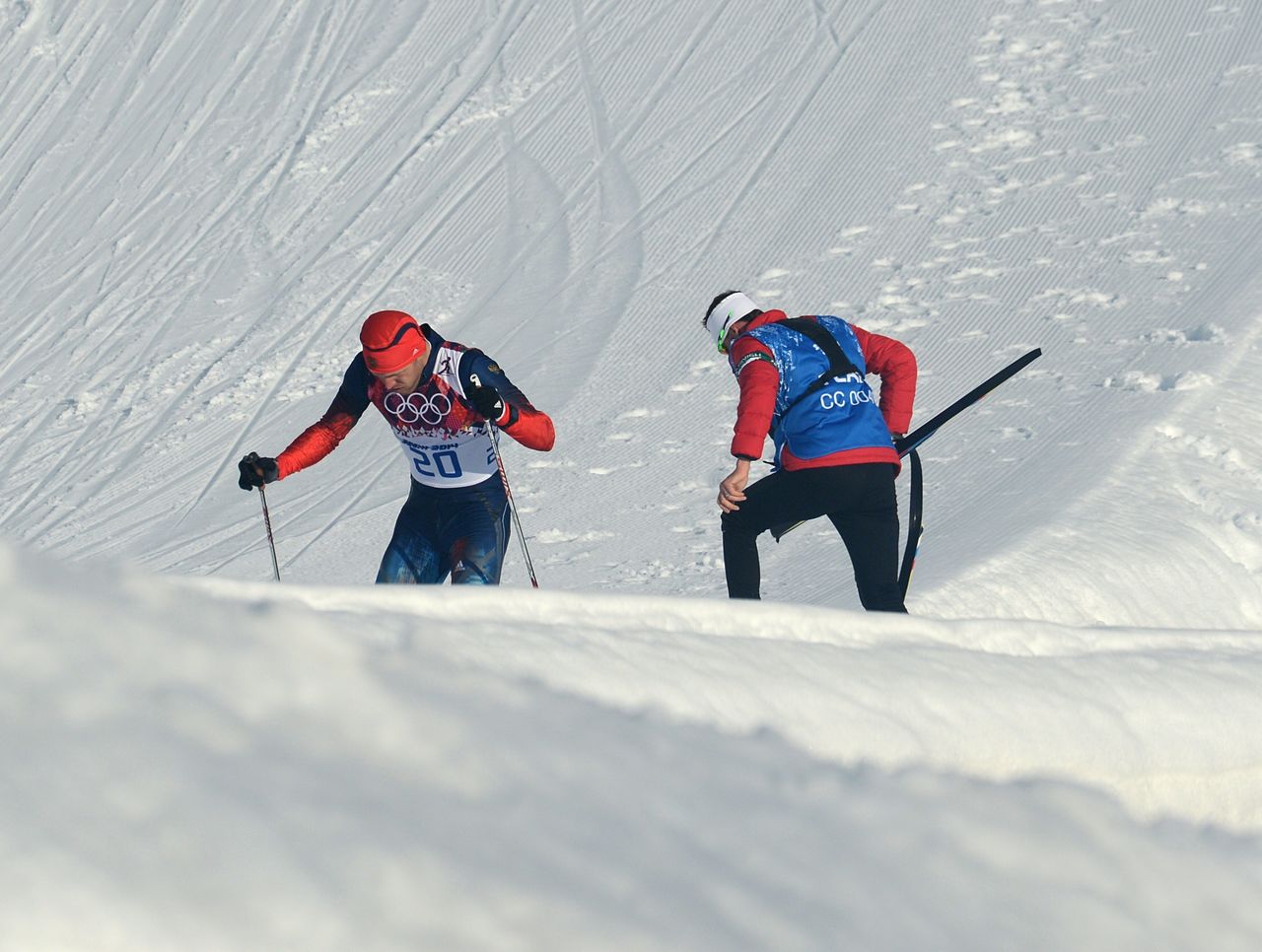
By: David P. Woods
Russian cross-country skier Anton Gafarov's dream of winning gold on home snow ended when he crashed and broke his ski, but Canadian ski coach Justin Wadsworth ensured Gafarov got to finish the race with dignity. Images of Wadsworth replacing Garafov's broken ski with a new one became some of the most shared of the Games because they revealed what many of us want to believe so badly: that the core tenets of the Olympic spirit are real. The Games certainly aren’t the spectacle of pure amateur competition they once claimed to be (and, truthfully, probably never were). As in all things, money rules -- by the eighth Coca-Cola commercial, that becomes pretty clear. But the Olympic spirit is real, and it can overshadow everything else if you let it. We all spend far too much time being cynical (or maybe just realistic) about everything wrong with the world. It’s tremendously refreshing to allow yourself to get swept up in that bubble of fair play, friendship and the pursuit of excellence for those two special weeks.
No matter your affiliation, the 2014 Olympic hockey tournament's most universally accepted player was 43-year old Teemu Selanne. Why? It could be because he plays the game "the right way." It could because he nearly became the Olympics' all-time leading scorer (playing in his sixth tournament). Or, it could be because he's just simply old. There's just something about an old-timer dominating the games of young men and women.
Ole Einar Bjorndalen
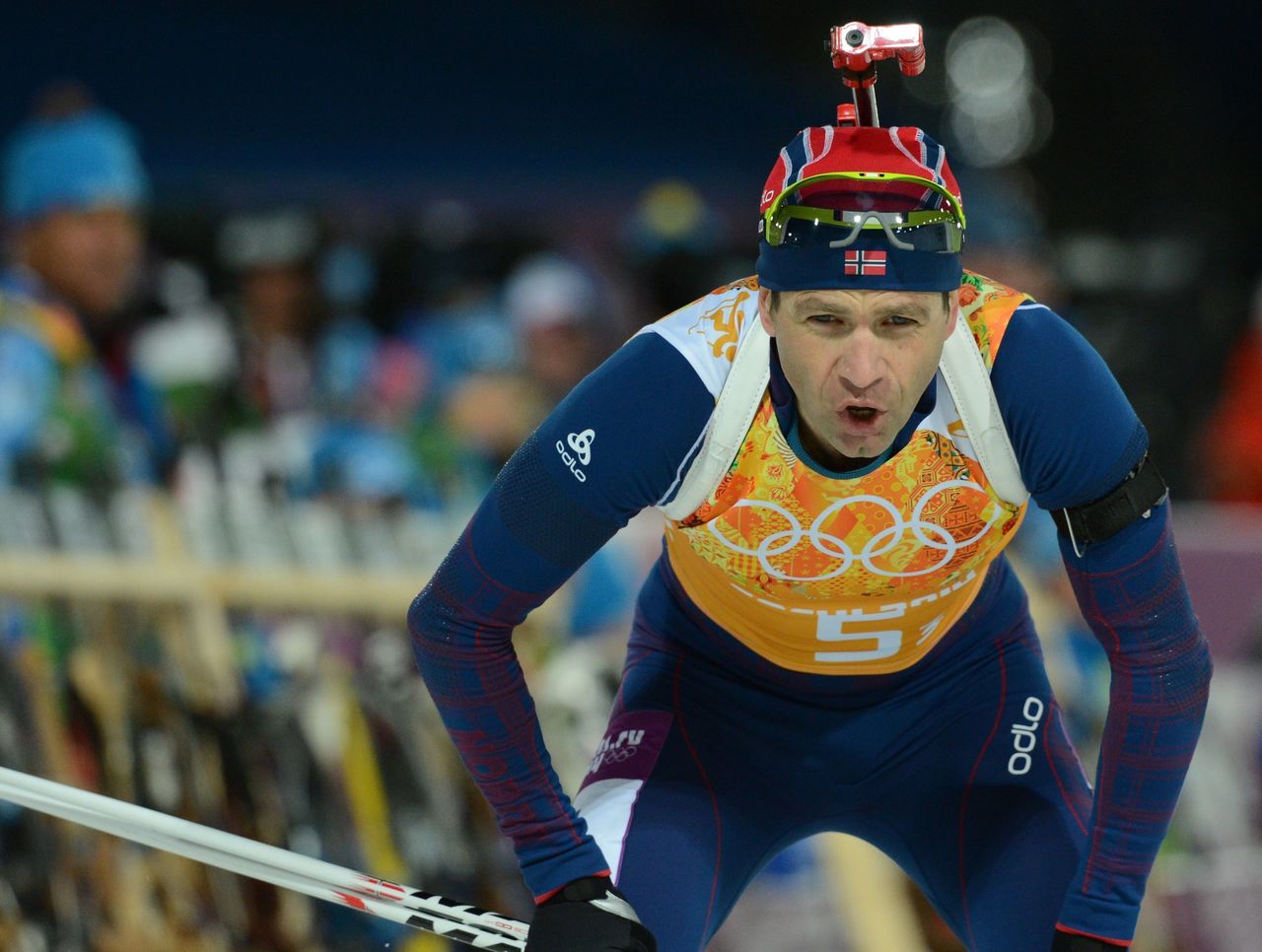
By: Justin Cuthbert
So, we would be remiss if we didn't celebrate another 40-something: Norwegian biathlete Ole Einar Bjorndalen.
Coming into these games, Bjorndalen needed two medals to become the most-decorated athlete in the history of the Winter Olympics. He wasted zero time. On Sochi's first full day of events, the 40-year-old predecessor took the next wave of elite biathletes to school in the most youthful event of its kind, the 10km Sprint. With five competitions remaining and a gold medal in tow, Bjorndalen was almost guaranteed the all-time record. However, with a fourth-place finish in the Pursuit, 34th in the Individual and a 22nd-place showing in the Mass Start later, there was room for doubt.
But because he's a true trailblazer, Bjorndalen would reach the top of the heap in true metaphorical torch-passing fashion. In the Olympics' first Mixed Relay event, the man who has put the biathlon on the marquee for the last six Winter Olympiads would make his 13th and final medal (a gold) of the inaugural variety.
Ole, ole, ole to Ole Einar Bjorndalen: The greatest Winter Olympian of all time.
Canada-3
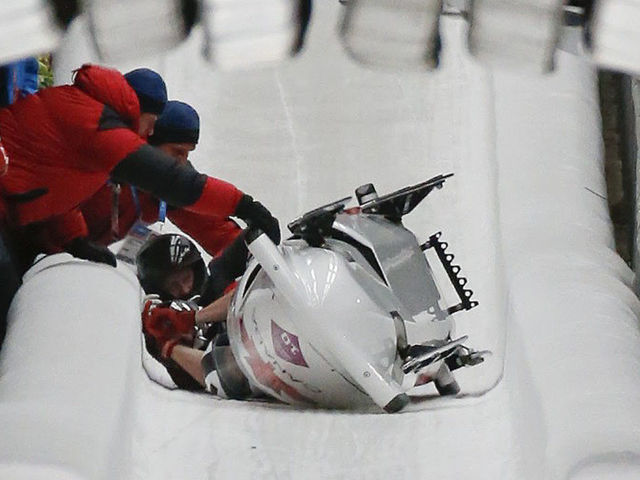
By: Chris Battaglia
Between turns 11 and 14 of Sliding Center Sanki there is a deceptively straight portion of track that hides two subtle bends. Luge or skeleton, two-man or four-man sleds - every competitor appeared to get forced into the left wall exiting Turn 11 unless they took a shallow line on the exit or steered hard to the right, often resulting in skids at speeds approaching 130 kilometers per hour. The Canada 3 four-man bobsleigh team’s crash at the entrance to Turn 14 seemed like a culmination of two weeks of bumps and bruises and lost seconds at the hands of the most difficult stretch of an incredibly technical sliding course. When Canada 3 returned (with two new pushers) for the next heat and completed the course, it was a display of courage and perseverance worthy of the values upon which the Olympic games were founded.
The Mustaches
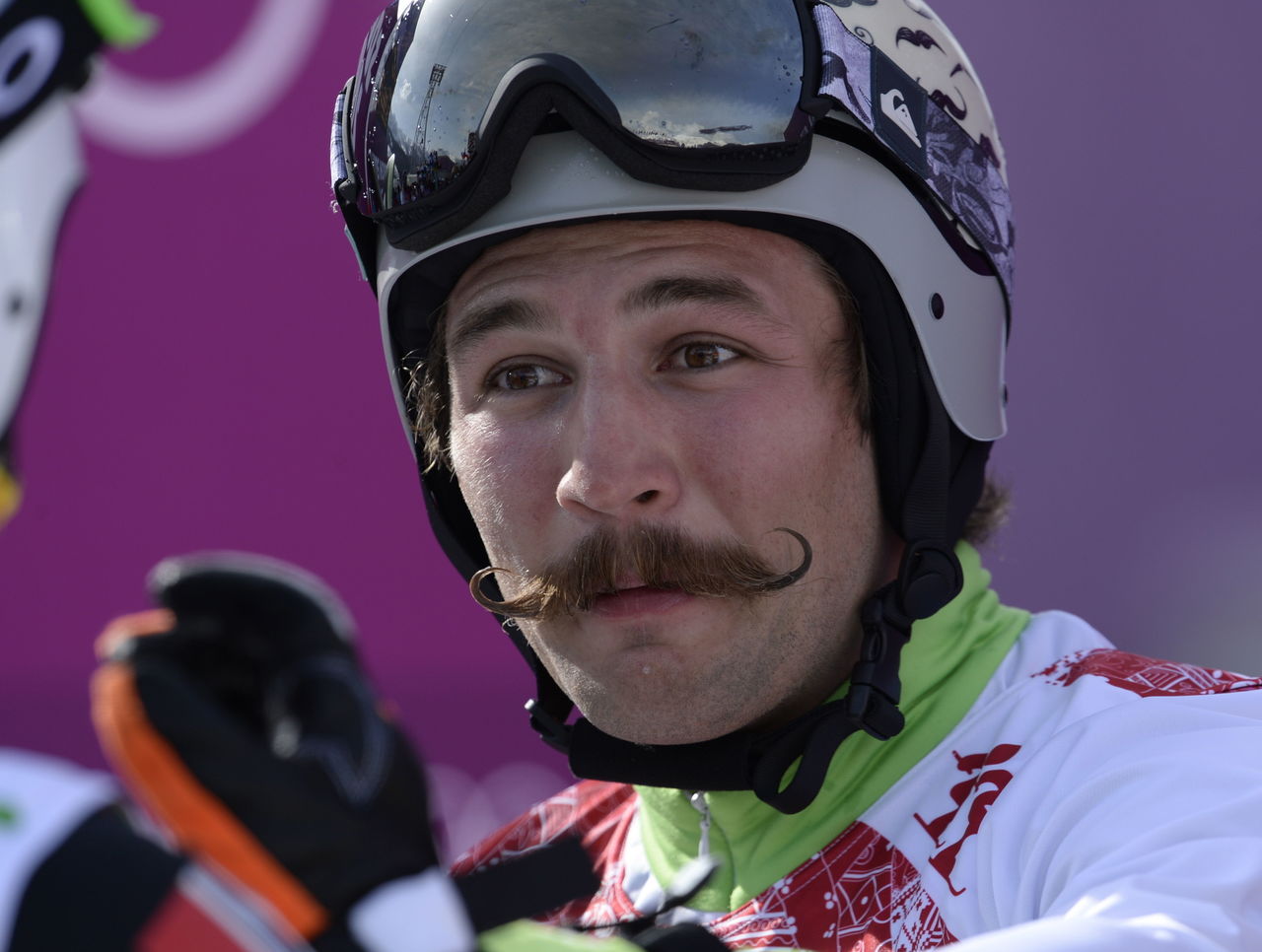
By: Michael Tomasone
Sochi treated us to some amazing memories during the 2014 Winter Olympics, especially the state of the residences and accommodations ahead of the tournament. Regardless of the podium finishes, Netherland's complete dominance of speed skating, and the numerous heartwarming stories, it's the mustaches that will always be remembered. You can never go wrong with a well groomed mustache, and like Tom Selleck, Frank Sappa, Ron Burgundy, and Freddy Mercury, Slovenia's Filip Flisar will always be remembered.
Despite not reaching the podium in the men's freestyle skiing event, Flisar clearly won the Olympics. His perfect handlebar mustache not only brought a 19th century vibe to Sochi, but definitely inspired thousands of men to brave the same style during the next Movember campaign.
Surprisingly Flisar wasn't the only Olympian sporting a mustache in Sochi, as Czech Republic's Eva Samkova made headlines with her temporary bristles. Many of you credit Samkova for winning gold in the ladies' snowboard cross event, but she wouldn't have done it without the mustache. It's science. Kudos to both Flisar and Samokova for making Sochi much classier with their extremely respectable mustaches.
Viktor Ahn
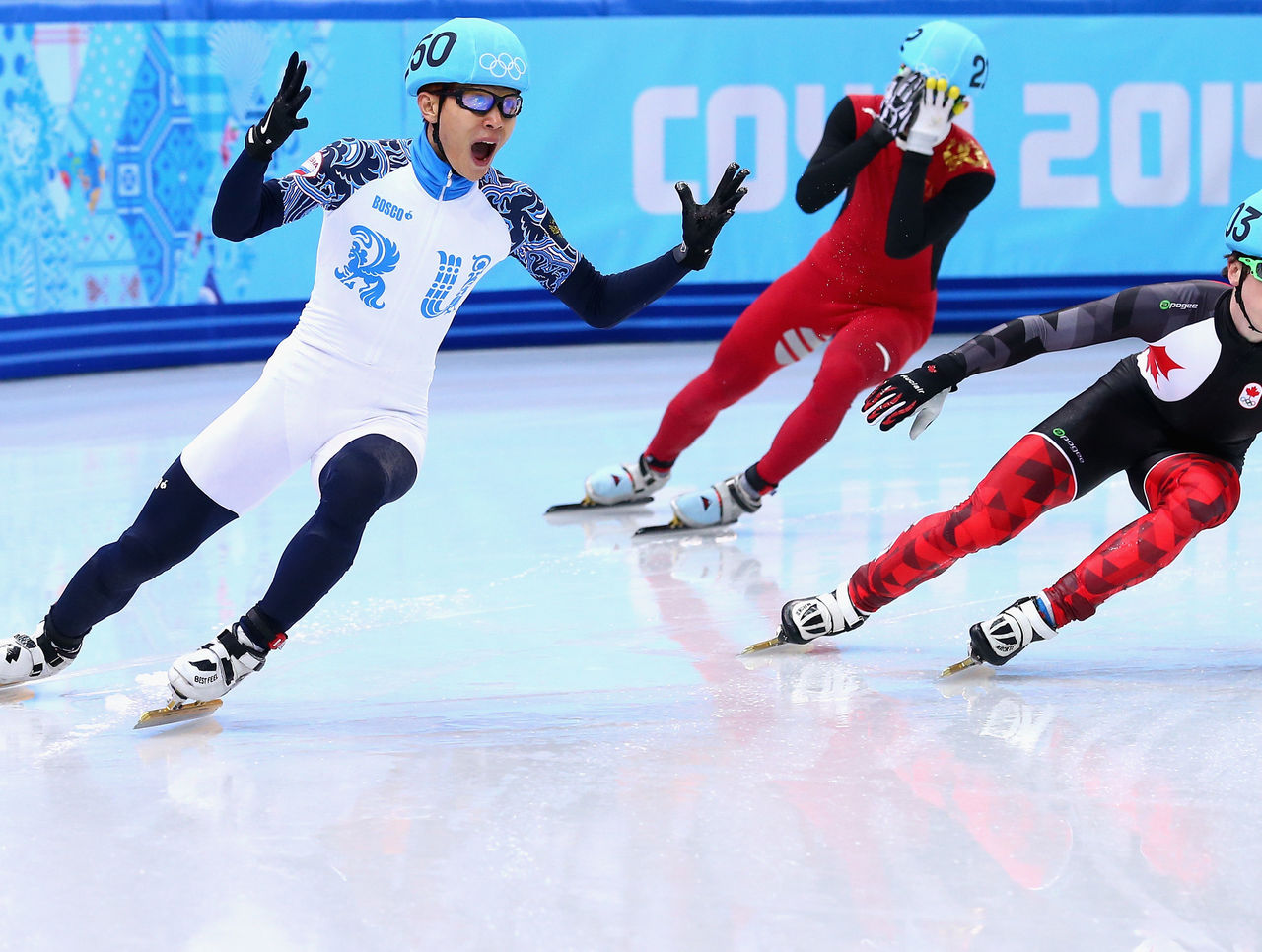
By Devang Desai
Viktor Ahn came into Sochi with the weight of the world on his shoulders. He won triple gold in Turin, but that was as a South Korean. A falling out with the Korean Speedskating Union and injuries conspired to prevent him from competing in Vancouver.
Heartbroken and without a country, he chose Russia. Ahn replicated his feat in Italy, winning three gold medals in Sochi. Russia’s newest son doesn’t resemble the likes of Albert Demtschenko or Evgeni Plushenko, and that’s a good thing.
Dutch Dominance
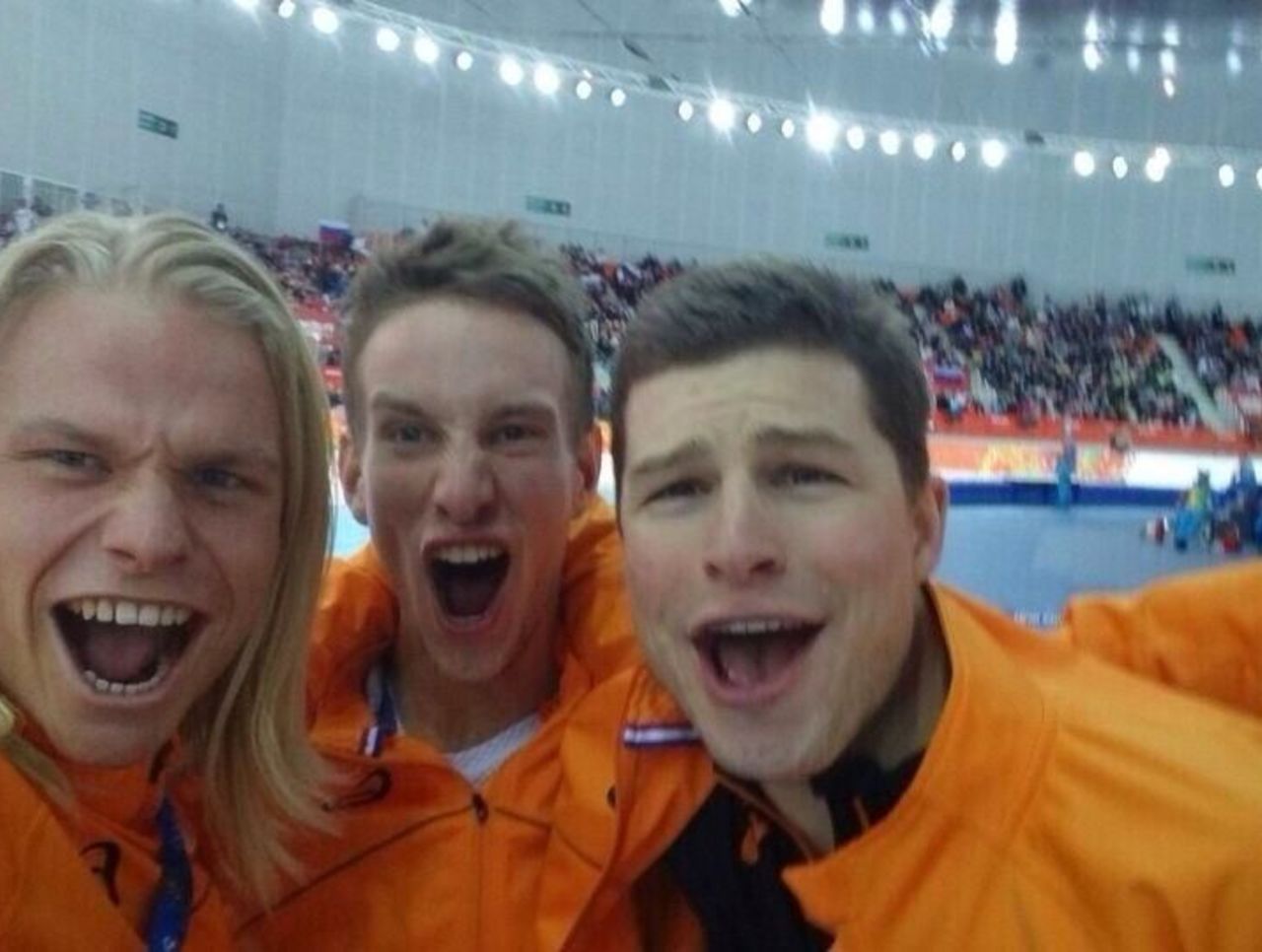
By: Dustin Parkes
After back-to-back gold medals (and Olympic records) in the men's and women's team pursuit on Saturday, the Netherlands leave Sochi with 23 speed skating medals - including eight golds - out of 12 events.
No other country won more than three medals in the sport.
The most speed skating podiums prior the these Winter Games was East Germany's 13 in 1988. The previous record for the most medals in a single sport at the Winter Olympics was Austria's 14 alpine skiing medals in 2006. Prior to the 2014 Games, no nation had won more than six gold medals in one sport.
It was an absurd display of record smashing dominance, and in my mind, the story of the Olympics.